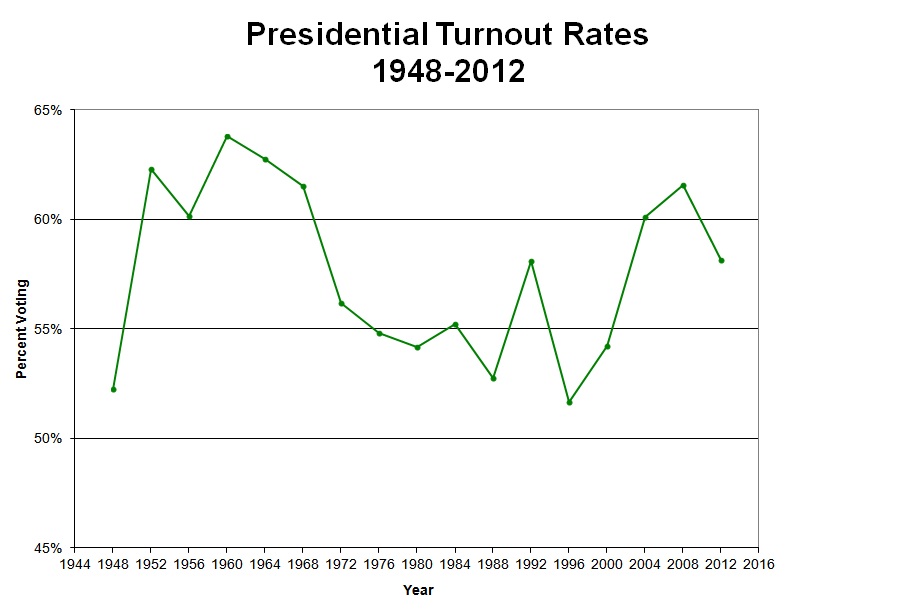 |
| Voters cast ballots in Columbus, Ohio, Nov. 6, 2012. |
For the first time, African Americans were more likely to vote than non-Hispanic whites were: 66.2% of eligible blacks voted, compared with 64.1% of whites. Since the Census Bureau began publishing voting data by race in 1968, whites had voted at higher levels than black.
"That's a landmark in American history," says William Frey, a demographer at the Brookings Institution. "And it's pretty clear that black turnout made a huge difference." His analysis of voting data shows that Republican presidential candidate Mitt Romney would have won or tied Obama in the popular vote if groups had turned out at the same rates they did in 2004.
The voting demographics in November boosted Obama's prospects, but some of the ingredients might not apply in future elections. The re-election campaign by the nation's first African-American president presumably helped energize black voters, although black turnout has been increasing since 1996.
And while Romney won the solid support of those whites who voted, he failed to convince some whites to show up at the polls.
Besides a lower voting rate, the number of white voters declined in 2012. There were 1.1 million more eligible white voters in 2012 than in 2008, but their total votes cast dropped by more than 2 million — the first time any racial group has shown a decline in net voting since the Census began tracking the issue, in 1996.
 |
Overall, 61.8% of eligible citizens voted, lower than voter turnout in 2004 and 2008 but higher than in 1996 and 2000.
The Census report was based on a survey of about 60,000 households taken in November. Unlike the exit polls of voters conducted by news organizations, the Census doesn't ask respondents who they voted for but only whether they voted.
"Over the last five presidential elections, the share of voters who were racial or ethnic minorities rose from just over one in six in 1996 to more than one in four in 2012," author Thom File wrote in the report, titled "The Diversifying Electorate."
That's a challenge for Republicans, who have struggled to appeal to Hispanics and others who are projected to make up an increasing share of the electorate.
Turnout dropped among the younger voters targeted by the Obama campaign. After rising significantly in 2000 and 2004, voting rates among those 18 to 24 years old declined more than seven points in 2012, compared with 2008. Overall, 41.2% of those younger voters went to the polls, compared with 71.9% among seniors, the most nation's most reliable voters.
And the gender gap?
It was alive and well in 2012. As in every election since 1996, women were more likely to vote than men, this time by about four points. The disparity was especially wide among African-Americans. Black women were almost nine points more likely to vote than black men.

No comments:
Post a Comment